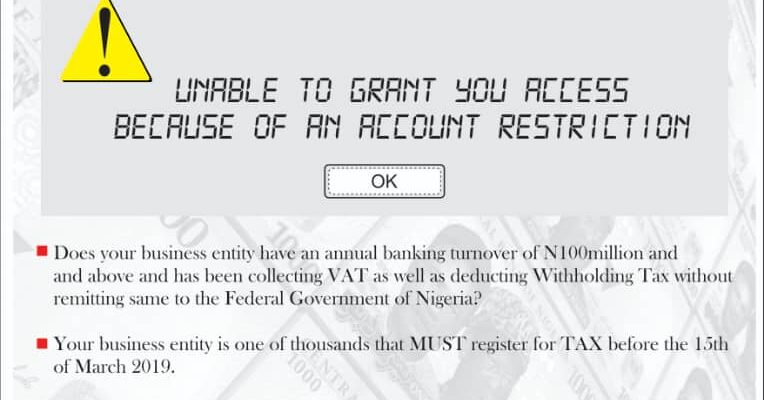
8 Must Do Strategies for SMEs at Year-End
SMEs needs strategies to mitigate the year end challenges. Year end is a busy time for a whole host of reasons. Holidays, travel plans, family visits, unwinding etc. But as a small and medium business owner, there are even more, you have to handle at the end of the year.
The end of a financial year of a business is a very strategic period of every business and their owners. Both large Corporations and Small and Medium Enterprises (SMEs) are expected to critically use the year end to carry out fundamentals that are necessary for the going concern and progress of their organization.

Year End Strategies For SMEs
Though, organizations are oblige to carry out certain activities at year end. But, beyond the statutory demands, year-end are the time of the year, when your business really needs your attention, especially in regard to finance and Accounting, Information Technology, General Operations and Administrative tasks. Doing this will help you close out the current year on a good note. More so, sets you up for starting off the following year in the right perspective.
Some of the followings are parts of the fundamentals that you need to carry out on your business before year-end
1. Maximize Sales:
Depending on your business, while December is the off peak for some businesses, it is the peak period for some. Good, if it is the off peak for you, but, if it is your peak, motivate your workforce to do more. Extend your work hours a bit, so that you are able to maximize large sales that accompanies year end.
2. Accounting:
This is where you are expected to spend much of your time at year end. This will help to get your business in right order. Managing your financial records is important throughout the year, but even more so at year end, usually December. By maintaining excellent records and keeping them in order, you will help yourself and your accountant when tax matters arises.
3. Run your Financial Statement:
These will show you where a company’s money came from, where it went, and where it is now. There are four main component of financial statements which are:
- Balance sheets; Presents the assets, liabilities, and equity of the entity as of the reporting date
- Income statements – Presents the revenues, expenses, and profits/losses generated during the reporting period
- Cash flow statements – Presents the cash inflows and outflows that occurred during the reporting period
- Statements of shareholders’ equity – Presents changes in equity during the reporting period.
- Your Income Statement report (profit and loss report) is key, this is the best way to tell where your business stands financially. It equally shows what your outlook is like for next year. You also want to look at your profits for the year. Is it larger than expected? If so, it might be a good time to make some larger purchases for which you can record future depreciation.

Talk with your accountant first to make sure you have the cash on hand to make the purchase. Also, make sure you fully understand depreciation rules.
- Verify Your Vendor Information:
Take a look at all of your vendors in your system, and verify that the contact information are intact. Ensure phone number, email address and contact name are still correct. Also, purge the system of any inactive vendors or inaccurate information. Or if time permits, evaluate whether or not they’re worth reconnecting with, and act accordingly.
Sending a season message to your vendors via bulk SMS or through their social media handles, will be a beautiful idea. Hampers or quality gift to your major customers or clients will also be pleasant.
4. Reconcile Accounts Receivable:
You should have a running list of what invoices are still unpaid or which clients still owe you money for work already completed. If possible, chase these outstanding bills and try to collect before the end of the year. This will help with cash flow and give you a clean start for the new year. The is one of those information that will show under you balance sheet.
5. Double-Check Your Payroll and Benefits:
This is a good time to stay on top of any issues for amendment that need to be made to your payroll before year end. Ensure that taxable fringe benefits and other benefits in kind such as company car, house, maids etc are accounted for. Other benefits that are easy to forget include educational reimbursement, health and life insurance, overtime and bonuses are adequately catered for.
Information Technology (IT)
- Back Up Your Data
Make sure that all of your files, including accounting, client files, creative briefs and emails are backed up and secure. You also want to do the same for your employees. Provide them with external hard drives or access to a cloud-based system so that you can ensure your data is safe.
- Back Up Your Contacts
Whether you do most of your business over the phone or via email, make sure to back up all of your contacts, even if that means writing them down in an old-fashioned Rolodex.
- Download Any Files or Reports
If you’ve kept some documents or reports only on a cloud-based system like Dropbox, or if you’ve only saved generated reports within the system that created them (i.e. QuickBooks), take a moment to download copies of all of these and back them up with everything else. The golden rule for data backup is 2:1. That is, create two separate digital copies, stored in two separate locations, plus one offline copy (preferably stored somewhere else).
- Evaluate Your File-Naming Conventions, and Adjust as Necessary
If you don’t have a file-naming system that is company-wide, seriously consider implementing one. For example, if you manually save receipts as Word documents, you might adopt a convention like “LastName-Date-InvoiceNumber,” or something similar.
Adopting file-naming conventions is especially important for businesses that share servers that can be accessed by multiple employees. Take a look at any of your own files that need to be backed up, and make sure you’ve named them appropriately. Change file names now to be clearer so that you’re not stuck searching for something come next June.
6. Budget/Forcast
This is one of the greatest tools in strategic planning for an organization, regardless of the size. Budget helps you to keep the estimate of your income and expenditure for a set of period of time. It is a financial plan that will guide your income and expenditure.
Budgeting for your business is a way of being intentional about the way you spend and save money, it keeps you focused on your money goals. With budget, you avoid spending unnecessarily on items and services that do not contribute to attaining your financial goals
7. Human Resources
- Determine If You Will Offer a Bonus or Other End-of-Year Incentive
It makes a difference whether you disburse bonuses or other rewards before the end of the year or in January, especially for your taxes, as it directly impacts the profits you report.
- Examine Your Staffing Needs for the Coming Year
Take an inventory of your current staff, and determine if you need to hire more employees for the next year. You’ll want to be sure you’ve budgeted for any additional personnel.
You can also use the period to reorganize your personnel, review job description, carry out appraisals and set new key performance indices (KPI) for the new year
- Collect a List of Your Business’ Accomplishments for the Previous Year, and Share It
Your employees will appreciate hearing all of the things that your company has accomplished over the past 12 months. This is also a great time of year to recognize any outstanding performers.
4. Re-Confirm Guarantors/Referees of Staff
Issues happens every time and anytime. Check on referees from your personnel to confirm if they are still okay with whom they stand as guarantor for. It will also avail you the knowledge of where they are staying currently.
8. General Business/Operations
- Conduct an Inventory Count
If you keep product or materials in a warehouse or on-site, conduct an inventory count before the year’s end. Make any corrections to your current records. If you notice significant discrepancies, it might be a good idea to investigate. You want to be sure that, you are keeping accurate records and no any internal loss due to fraud.
- Examine Your Goals, and Make New Ones
Using your financial statements, customer feedback and input from your team, assess your goals for the previous year and determine how well you did. Did you achieve what you set out to do? Or did you find yourself taking an unexpected path to a different kind of success?
With the learning from the previous year in mind, set goals for the coming year. Financial goals should be a given, but, make room to evaluate professional and client goals too.
- Check Your Website
Go through your website and click on every link. Try sending yourself an email or message from the “contact us” form. Call the business lines and make sure they work. These may seem like ordinary tasks, but things break all the time, including websites. As your digital calling card and often the first place people get an impression of your business, it’s an important commodity to keep in fine working order.
- Review Operations:
Your operations in implementing your target objectives must be review to identify areas of improvement. This will enable you to reduce cost or lead time between which task is commenced and when it is completed.
Closing out the end of the year is an overwhelming task, but it is practicable, if you follow a checklist.
You can also engage your Accountant or a Business Consultant, make an appointment with him or her as early as possible. And as always, the more you can plan for these tasks throughout the year, the easier your end of year will be.
About the Author:
Samuel Omofojoye is the Director, Policy & Operations, SOW Professional Services Ltd – a leading Tax & Management Consulting Firm in Nigeria. Omofojoye is a leading expert on internal control system and corporate governance best practices in Nigeria and West Africa sub region. He is A Fellow of Institute of Management Consultant, an advocate of responsible governance. He is the Director of Centre, International Centre for Tax Research and Development. Omofojoye has been honored for his work in promoting compliance culture and awareness in the West Africa region.




Hi, thank you for your observation, hope to check as advised
Regards
Definitely imagine that that you stated. Your favorite reason seemed to be at
the internet the easiest thing to take into accout of.
I say to you, I definitely get annoyed even as other folks consider concerns that they just
do not recognise about. You managed to hit the nail upon the highest and
also outlined out the whole thing with no need side effect , folks
could take a signal. Will likely be again to get more.
Thank you
I’m extremely impressed with your writing skills as well
as with the layout on your blog. Is this a paid theme or
did you modify it yourself? Either way keep up the excellent quality
writing, it’s rare to see a nice blog like this one nowadays.
Thank you so much for your compliments. We modified it so as to enhanced the SEO.
This is part of what we do to boost Clients sales.
Hi. Do you allow guest posts on sowprofessional.com ?
I do not even know how I ended up here, but
I thought this post was great. I don’t know who you are but definitely
you’re going to a famous blogger if you are not already 😉 Cheers!
Dear Sir,
We are glad that our information is of great use to you, we thank you for your feedback and also wish you can get across for further supports.
Hurrah, that’s what I was looking for, what a data! existing here at this web site, thanks admin of
this website.
Dear Sir,
We are glad that our information is of great use to you, we thank you for your feedback and also wish you can get across for further supports.
Pretty nice post. I just stumbled upon your weblog
and wanted to mention that I have really loved surfing around your weblog posts.
In any case I will be subscribing for your feed and I am hoping you write once more soon!
Hello i am kavin, its my first time to commenting anyplace, when i read this article i
thought i could also create comment due to this sensible
post.
Dear Sir,
We are glad that our information is of great use to you, we thank you for your feedback and also wish you can get across for further supports.
Thank you for some other informative blog. Where else may just I am getting that type of
info written in such an ideal approach? I have a undertaking that I’m just now operating on, and I’ve been at the glance out for such info.
Dear Mr Phoebe,
We are glad that our information is of great use to you, we thank you for your feedback and also wish you can get across for further supports.
Sam
Hi it’s me, I am also visiting this website regularly, this web page is in fact good and the users are actually sharing good thoughts.